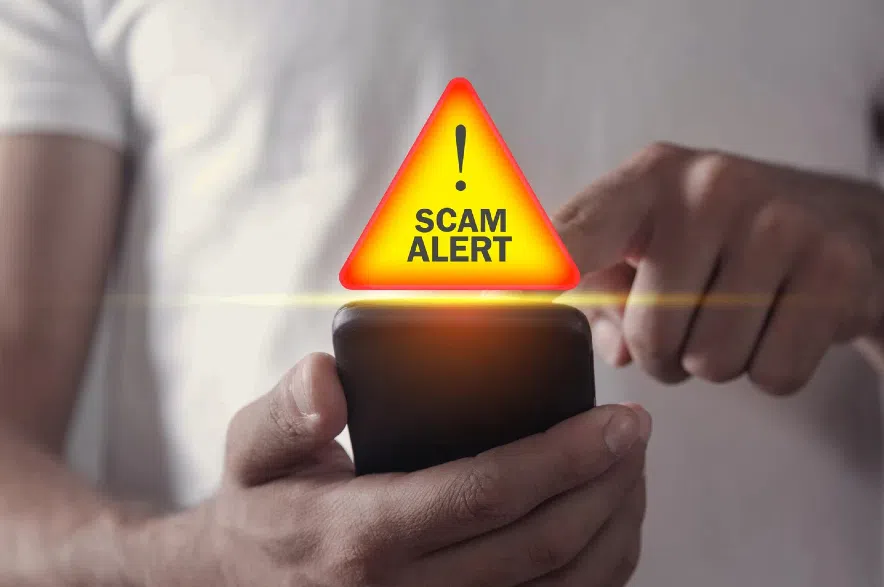A recent rise in fraud cases in Saskatchewan has prompted a warning from two police services in the province and the Financial and Consumer Affairs Authority of Saskatchewan (FCAA).
Both Regina Police Service (RPS) and Moose Jaw Police Service (MJPS) issued news releases on July 25 about a STARS Lottery scam, where victims receive phone calls or emails from someone posing as a STARS Lottery employee telling them they have won a prize.
Both police services said the caller would then tell the victim to send a payment, often in the form of a money order or gift cards, adding that people will never be asked to send money to claim any lottery prize.
People who are are being asked to send a cheque, money order, or payment of any kind to claim your lottery prize, should know it is a scam, police said.
Hang up the phone or delete the email immediately, they said, do not provide the scammer with the access codes for the gift cards, and never provide personal information such as a Social Insurance Number (SIN), or banking details over the phone.
People can check with STARS directly to verify if they are a winner and if the lottery is legitimate.
If you believe you are a victim of any scam or suspect someone is trying to defraud you, contact RPS at 306-777-6500 or Moose Jaw Police Service at 306-694-7600.
Information can also be supplied to Moose Jaw Crime Stoppers at 1-800-222-8477 or RPS online at reginacrimestoppers.ca
Second scam involves fake Mark Carney endorsement
Another ongoing scam involves fake election news ads that falsely promise high investment returns, claiming people can earn profit within a month from a $350 deposit.
Scammers rely on AI-generated deep fake videos of public figures to falsely assert the investment is government-approved and “no investors will lose their money,” and the FCAA said in a July 25 news release that one scam involves Prime Minister Mark Carney apparently endorsing an online investment platform called QuilCapital.
RPS said that losses reported to them as a result of this scam are expected to exceed $1 million.
“Always check the registration status of an entity at The Canadian Securities Administrators’ National Registration Search online at aretheyregistered.ca before you invest, and do not deal with any unregistered entities,” FCAA Securities Division Executive Director Dean Murrison said in their release.
“Scammers often create fake social media posts claiming a notable figure is endorsing an investment.”
QuilCapital claims to offer Saskatchewan residents trading opportunities, including stocks, cryptocurrencies, Forex, indices and commodities.
There may be other businesses with the same or a similar name to QuilCapital, FCAA said. The alert only applies to the online entity using the website quilcapital dot com.
QuilCapital is not registered with the FCAA to trade or sell securities or derivatives in Saskatchewan, it said, and investors and consumers should not to send money to companies that are not registered in Saskatchewan, as they may not be legitimate businesses.
People who have invested with QuilCapital, or anyone claiming to be acting on their behalf should contact the FCAA’s Securities Division at 306-787-5936.
In Saskatchewan, individuals or companies need to be registered with the FCAA to trade or sell securities or derivatives. The registration provisions of The Securities Act, 1988, and accompanying regulations are intended to ensure that only honest and knowledgeable people are registered to sell securities and derivatives and that their businesses are financially stable.
FCAA said investors should always verify that the person or company is registered in Saskatchewan to sell or advise about securities or derivatives, get a second opinion and seek professional advice about the investment.
It also said people should never make an investment decision based solely on a public figure endorsement. Scammers often create fake social media posts or news articles claiming an investment is endorsed by a notable figure.
The Canadian Anti-Fraud Centre, which collects information on fraud and identity theft and provides information on past and current scams affecting Canadians, says that as of June 30, 2025 it had recorded 17,094 fraud victims across the country with reported losses of $342 million.
Fraud reports can be made online here.











